A high number of beef farmers have moved towards bull finishing systems in recent years, particularly under-16-month bull beef.
While fodder beet, whole crop and silage are all effective feed stuffs, the most common is a high-concentrate diet, also known as ad-lib.
Bulls need to be on ad-lib feeding for at least 80 days prior to slaughter – 100 to 120 days is preferable. Ad-lib feeding in continental bulls usually consists of 12-13kg/head/day concentrates plus roughage.
With the highest proportion of beef calving taking place in spring, many beef bulls are now approaching their first birthday and this means it is now time to be moving towards ad-lib feeding.
Management
However, the transition from a store to ad-lib diet can cause problems if not managed properly.
Acidosis is the biggest concern. It is caused by rapid fermentation of the high levels of starch and is most likely in high-grain diets.
Gradual adaptation to the diet is critical. Ascertain when you need to be at ad-lib and allow an introductory period of three to four weeks for the changeover.
Changes
Many farmers will also change the ration at this point. Again, sudden changes can be a problem. It is a worthwhile exercise to mix the new and old ration at a 25:75 ratio for a week, then at a 50:50 ratio for another week, before a final week at a 75:25 split.
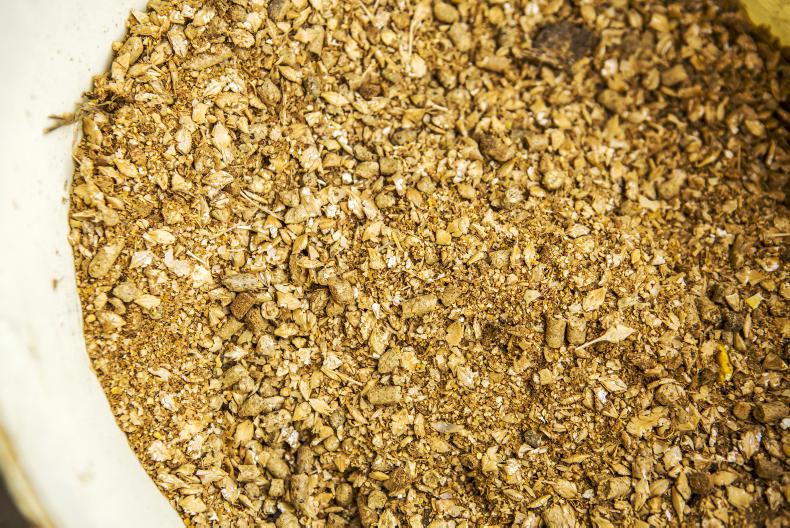
Maize has quite a low risk of causing digestive upsets as it is slowly digestible.
In terms of ingredients, maize has quite a low risk of causing digestive upsets as it is slowly digestible. Barley has a medium risk. Rolled barley is better than ground barley. Try to limit wheat inclusion to less than 3kg/head/day as it is very rapidly digestible.
Rumen function
A minimum level of a palatable roughage should always be provided to maintain rumen function too. Approximately 1kg DM/day or 8-10% of the total dietary DM is optimum. Straw is the best form of roughage. With straw quality very variable this year, try to ensure straw is palatable.
Water is also hugely important. When talking about water, there are two factors: the cleanliness of water and the availability of water. A finishing animal eating 14kg to 15kg of dry matter will drink up to 60l of water each day.
Buffers or yeast will help, but will not make up for poor management of any of the aforementioned factors.
A high number of beef farmers have moved towards bull finishing systems in recent years, particularly under-16-month bull beef.
While fodder beet, whole crop and silage are all effective feed stuffs, the most common is a high-concentrate diet, also known as ad-lib.
Bulls need to be on ad-lib feeding for at least 80 days prior to slaughter – 100 to 120 days is preferable. Ad-lib feeding in continental bulls usually consists of 12-13kg/head/day concentrates plus roughage.
With the highest proportion of beef calving taking place in spring, many beef bulls are now approaching their first birthday and this means it is now time to be moving towards ad-lib feeding.
Management
However, the transition from a store to ad-lib diet can cause problems if not managed properly.
Acidosis is the biggest concern. It is caused by rapid fermentation of the high levels of starch and is most likely in high-grain diets.
Gradual adaptation to the diet is critical. Ascertain when you need to be at ad-lib and allow an introductory period of three to four weeks for the changeover.
Changes
Many farmers will also change the ration at this point. Again, sudden changes can be a problem. It is a worthwhile exercise to mix the new and old ration at a 25:75 ratio for a week, then at a 50:50 ratio for another week, before a final week at a 75:25 split.

Maize has quite a low risk of causing digestive upsets as it is slowly digestible.
In terms of ingredients, maize has quite a low risk of causing digestive upsets as it is slowly digestible. Barley has a medium risk. Rolled barley is better than ground barley. Try to limit wheat inclusion to less than 3kg/head/day as it is very rapidly digestible.
Rumen function
A minimum level of a palatable roughage should always be provided to maintain rumen function too. Approximately 1kg DM/day or 8-10% of the total dietary DM is optimum. Straw is the best form of roughage. With straw quality very variable this year, try to ensure straw is palatable.
Water is also hugely important. When talking about water, there are two factors: the cleanliness of water and the availability of water. A finishing animal eating 14kg to 15kg of dry matter will drink up to 60l of water each day.
Buffers or yeast will help, but will not make up for poor management of any of the aforementioned factors.





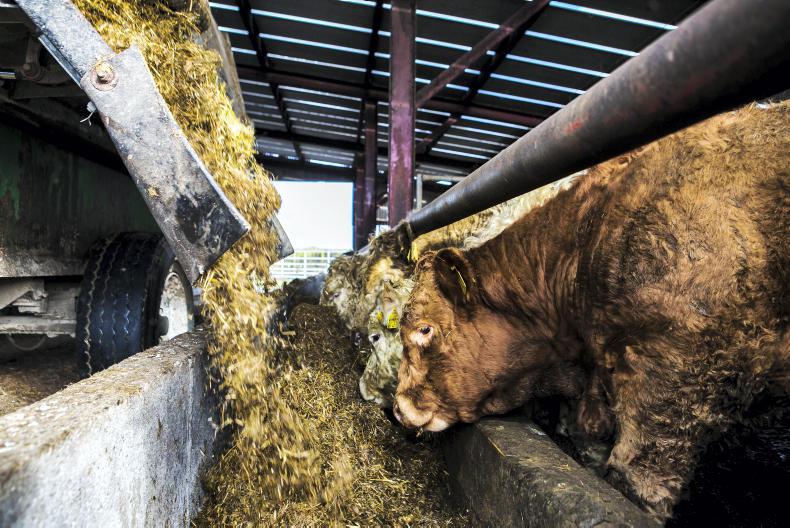
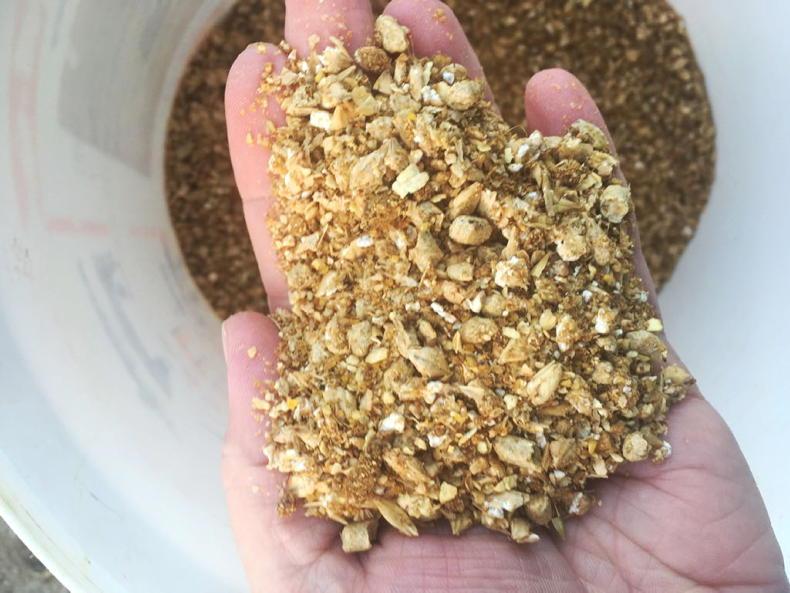

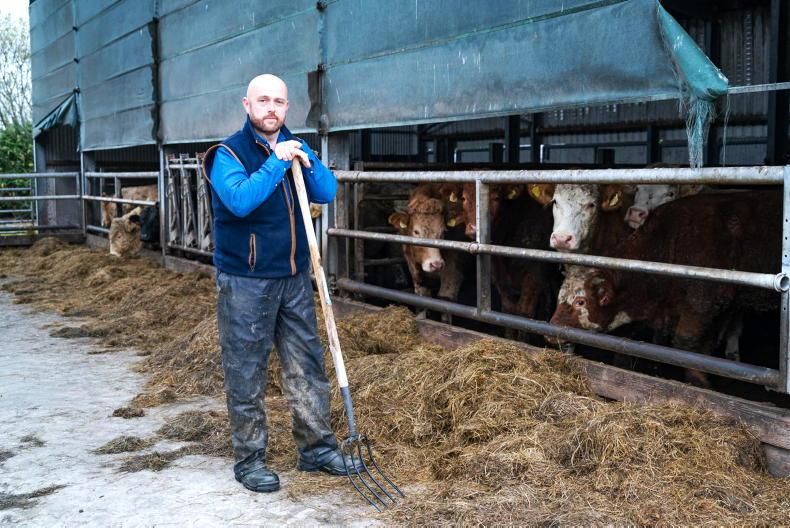
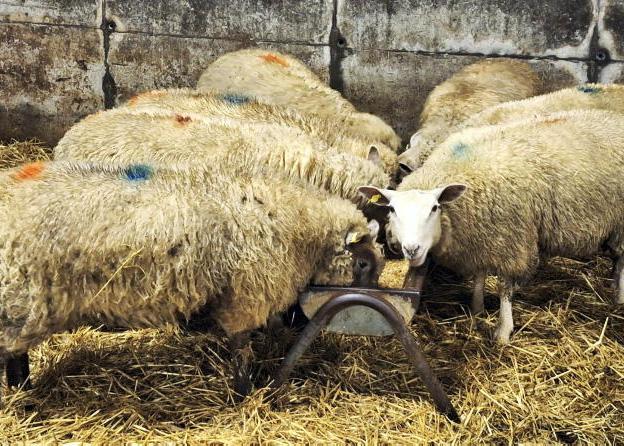
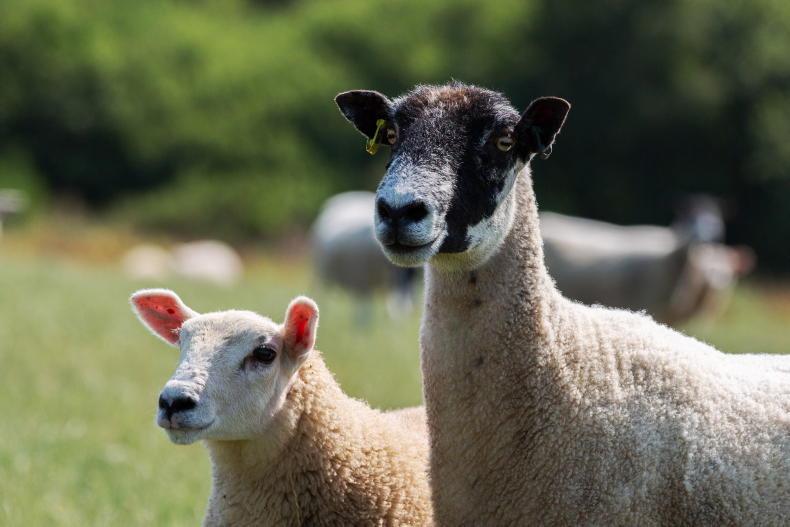
SHARING OPTIONS